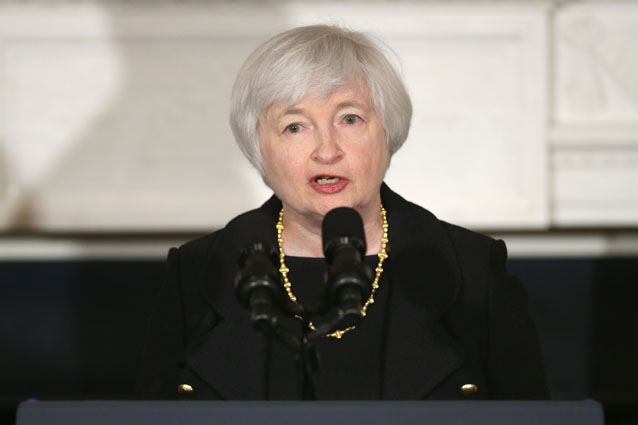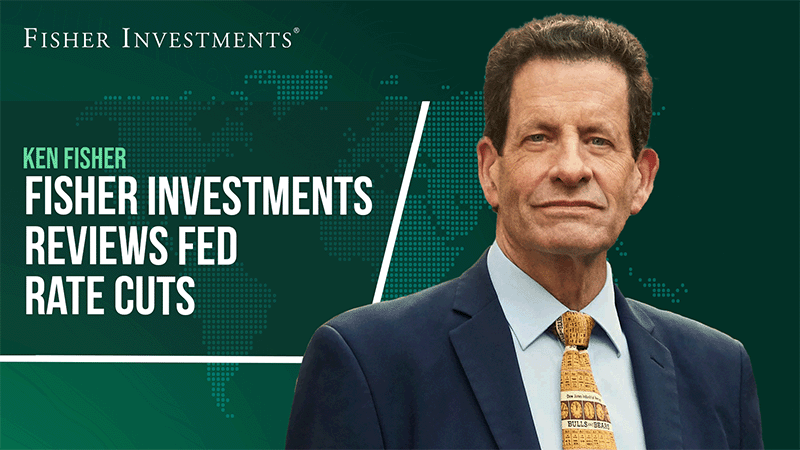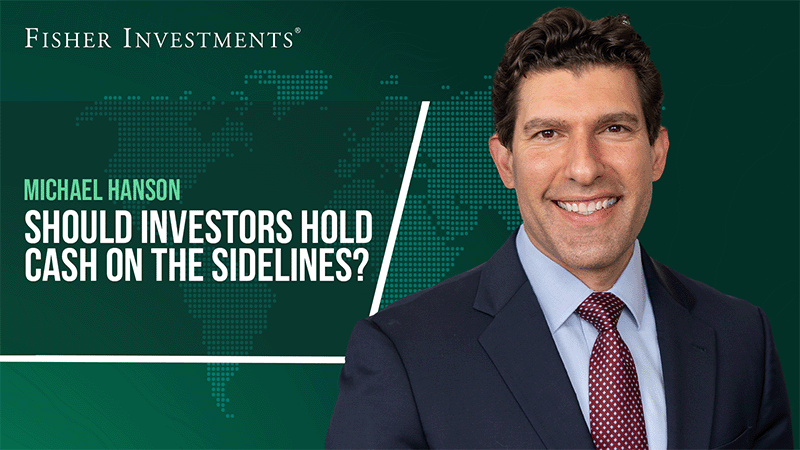Personal Wealth Management / Economics
Federal Reserve Chairman Nominated: Yellin’ About Yellen
Speculation abounds over monetary policy’s future with Janet Yellen in the Fed’s big chair—but history shows action often deviates from expectations.
Likely future Fed Chair Janet Yellen sets expectations about her time in office, but her actions will probably speak louder for stocks. Source: Chip Smodevilla/Getty Images News.
Perhaps the biggest mystery since “Who Shot JR?” was finally solved Wednesday: President Obama tapped Fed Vice-Chair Janet Yellen to succeed Ben Bernanke. Cue the slicing and dicing of every quote, job, paper and even her husband’s Nobel prizewinning research for clues into what she’ll do as Fed head. However, history shows, regardless of past experience, credentials or promises, new Fed heads frequently behave differently than expected once seated. Janet Yellen probably won’t prove the exception. So investors are likely little served by trying to game her moves today.
Still, Yellen’s nomination has been widely celebrated as a positive. Perhaps, in a way, it is—the uncertainty of who gets the nod is gone. But that’s about it. Ultimately policies matter, not people, and Yellen’s policies are unknown today. What most celebrate are her Ivy League degrees, status as half of an economic power couple, past Federal Reserve experience, economics knowledge and methodical problem solving. And—primarily—her Bernanke-ish dovish stance. (QE forever! Maybe? We hope not.) But academic pedigrees, resumes, bylines and marriage licenses don’t speak to Yellen’s potential actions once she’s in office. Actions matter much more for stocks. And no one today has any way of knowing how Yellen will act once she’s in the big chair.
Both Bernanke and his predecessor, Alan Greenspan, took office with specific reputations. But once there, each took monetary policy down paths their resumes couldn’t have predicted. Alan Greenspan had a reputation as an inflation hawk a la Paul Volcker. And inflation was low during his tenure! Yet with the benefit of hindsight, many folks would likely accuse him today of keeping rates far too low for far too long. Now, many even accuse him of inflating the housing bubble! You’ll be hard-pressed to find anyone who expected this from a famous “inflation fighter” pre-Fed.
Upon appointment, Bernanke was lauded for his expertise on the Great Depression—certainly he’d know his way around a financial crisis. However, throughout 2008, he seemed to throw out the playbook. He seemingly forgot many of the tools the Fed historically used to act as lender of last resort during a crisis. He never manipulated the spread between the discount and Fed Funds rate to boost liquidity in the banking system—banks never had the chance to borrow cheaply from the discount window and lend to each other at the higher overnight rate. The rates have stayed identical. Similarly, when it was time to stimulate, he never lowered the reserve requirement—another time-tested tool. And while he arranged a shotgun marriage between Bear Stearns and JPMorgan, his and the government’s subsequent actions followed absolutely no playbook. Seemingly arbitrary decisions are not the stuff of quality crisis-management. Instead, he went for broke with quantitative easing (QE)—a rather curious move for a supposed disciple of monetarist economist Milton Friedman. Some folks think this move is straight out of Friedman’s famous helicopter analogy. But in QE’s case, the money Helicopter Ben dropped made a giant U-turn and wound up back at the Fed. Why? QE flattened the yield curve, reducing the velocity of money—ignoring Friedman, not to mention all the time-honored evidence steep yield curves boost growth.
It’s possible contracting Fed amnesia could help Yellen—perhaps she’ll forget she was at Bernanke’s side in the Age of QE and go back to ordinary, traditional monetary policy tools. Perhaps she’ll forget her alleged fascination with the “Non-Accelerating Inflation Rate of Unemployment” and operate on the (correct) assumption unemployment and inflation aren’t linked. Neither is certain—just possible. Then again, illogical moves are possible, too. This early in the game, there isn’t a way to know. Heck, we can’t even know how she’ll communicate—will she do Bernanke’s transparency one better and tweet Fed moves all over Twitter? Only time will tell.
In the meantime, we’d suggest long-term growth investors sit tight and focus on the many fundamentals driving this bull market, not try to pre-emptively restructure their portfolio for a Yellen-led Fed. Markets move on probabilities, not possibilities. Until Yellen takes office and shows her true feathers, her potential policies aren’t gameable.
Plus, monetary policy isn’t the sole market or economic driver. To wit, QE is still subduing the economy by discouraging bank lending, but the US is growing anyway, and the bull market has continued all the while. Monetary moves are important, but other variables matter.
So we’ll leave the speculation to others. Past credentials may have helped Yellen get her Chair, but they likely can’t accurately determine future Fed actions or market reactions—something investors should keep in mind.
If you would like to contact the editors responsible for this article, please message MarketMinder directly.
*The content contained in this article represents only the opinions and viewpoints of the Fisher Investments editorial staff.
Get a weekly roundup of our market insights
Sign up for our weekly e-mail newsletter.

See Our Investment Guides
The world of investing can seem like a giant maze. Fisher Investments has developed several informational and educational guides tackling a variety of investing topics.






